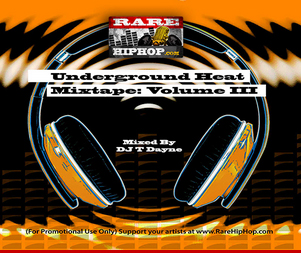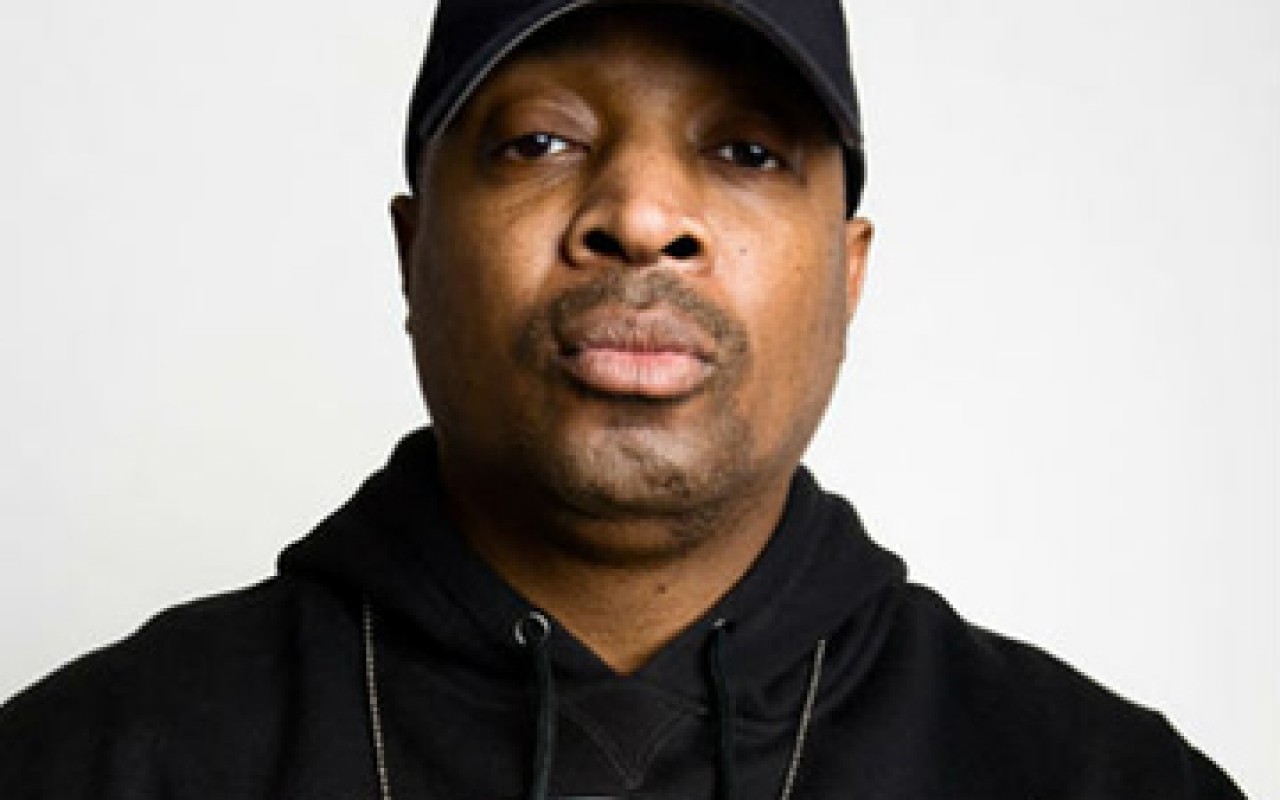It’s not that early, but Chuck D is tired. He has a reason to be: The night before we talk, he broke one of the rules of his regimen, which is to not be out past 11 o’clock unless he’s working, and not to be out past one in the morning under any circumstances. 'Late nights don’t mix with early days.' he says, but the night before, he’d been at a show at a club with a long lineup of young rappers playing. 'I had a late night in an environment that was just, like, three hours of weed. I don’t do none of that stuff, so I can handle it,' he says, 'But I had to be diplomatically cool for the acts I was checking out. It would have been rude to leave earlier, so I had to be around until the end and see everybody. You can’t do that all the time.'
Chuck D has a lot of thoughts about how to keep yourself together as you get older. He’d have to—he’s one of the godfathers of hip-hop, the booming baritone voice of a generation that left the underground parties in the Bronx of the 70’s for the radio in the mid-80’s. But at a time when so many major acts were teenagers—whether they were Ice Cube or DJ Jazzy Jeff and the Fresh Prince—Chuck D was a mature voice even when he started, releasing Public Enemy’s debut album Yo! Bum Rush The Show in 1987, when he was already in his late twenties. And the decades of rhyming have been good to him. It may have been a long time since Public Enemy was getting radio play with new singles, but he’s still selling out arenas and touring as often as he wants to—which is another thing he’s got a rule about.
'We have strict rules to never be away more than 21 days, and we actually set standards to be a sixteen day limit,' he says. 'Maybe it leaks over to 18 or 20 days, but after twelve, the wheels start popping up differently. You can probably break it up, and we’ve broken up tours so people could get back to their regular lives.'
Figuring out how to age in hip-hop is an important question. For years, there wasn’t much room for rappers to stay on the radio as they got older. That’s something that Chuck D learned firsthand, when the chart-topping success of Def Jam-released Public Enemy albums like It Takes a Nation of Millions to Hold Us Back, Fear of a Black Planet, and Apocalypse 91... The Enemy Strikes Black gave way to the largely ignored independent releases like 1999’s There’s a Poison Goin’ On and 2005’s New Whirl Odor. But a world in which Public Enemy’s songs stopped getting played on the radio gave way to one in which Jay-Z’s and Dr. Dre’s new releases are awaited with eager anticipation, while Public Enemy booked tours that young, hot acts looked at in awe. Through it all, Chuck D kept doing what he did without compromise, maintaining an outsized influence on the culture even as he continued to find new ways to remain relevant.
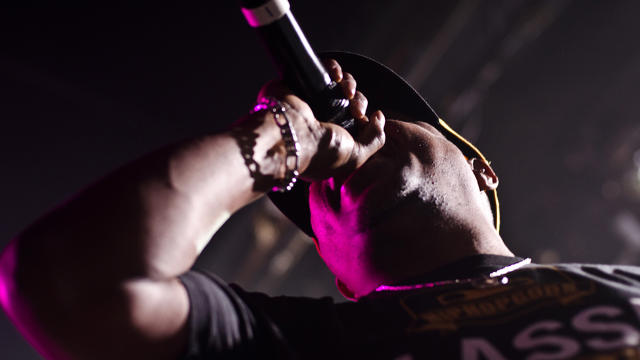
FOCUS ON YOURSELF, NOT THE COMPETITION
He’s not prone to complaining, but Chuck D can recognize that he was just a little too ahead of his time, in terms of how his music was received as he approached 40 in the late 90’s, around the time Public Enemy stopped getting radio play—the same age that Jay-Z was when he released the smash albumWatch The Throne with Kanye West. 'If you had to count the amount of times that Jay-Z was played on the radio versus Public Enemy, it’s probably a million to twenty,' he says. But he doesn’t see the fact that there’s more space for older artists on the radio now to be a true transformation of the culture.
'It’s evolution, not revolution,' he explains. 'It was bound to happen because the genre matures and ages, and the people who grow along with it are accountable and responsible in their own lives.' I mention to him that, a few years ago, I had interviewed Pusha T around the time that the rapper was recording his My Name Is My Name album with Kanye West, and Pusha T had spent a portion of the interview talking about how he was jealous of the size of the venues that Public Enemy was playing on its tour with LL Cool J and Ice Cube.
'They have all the spoils,' Chuck D says of artists like Pusha T and Kanye West. 'Doing that record, yeah, it made the radio, but for them to [do a tour like that], they would have to see if they could group together with four or five other situations, then also wait for time, too, because older people would have credit cards and venues that would accept them. It’s interesting, though, because there are envious tendencies on both sides. We know we had to build everything for ourselves, where Pusha T might have come into a system.'
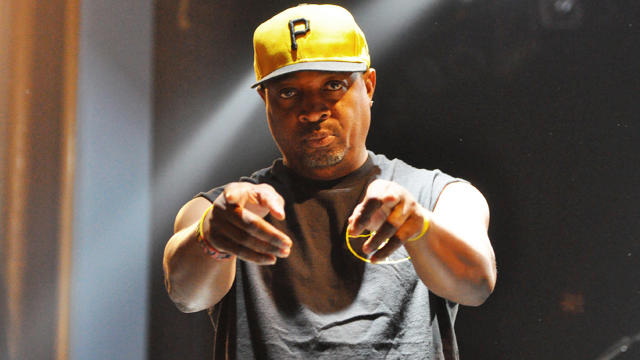
BUILD YOUR OWN SYSTEMS
When Chuck D says 'we had to build everything for ourselves,' he’s not joking. He’s involved with a website called HipHopGods.com that promotes rappers like Rakim, KRS-One, and Ice-T. And he looked for inspiration in the way that other artists found support later in their careers—a collaborative approach to building a sustainable system that shouldn’t be a surprise for an artist whose early tours saw Public Enemy on the road with Anthrax and the Sisters of Mercy.
'We didn’t create this out of a space of our own figment of imagination. What we did was come up with HipHopGods by following how classic rock has matured, and the business stucture around that. We saw how people like AC/DC and Megadeth are still supported by a situation that they helped set up to support themselves—rock might not be on mainstream radio as much, but it’s already buoyed and supported by a system that curates and caretakes for itself,' he explains. 'That was our idea for HipHopGods.com. It plays classic artists, but their new songs, so it’s not locked into the day. It’s not a cultural graveyard—it may be a cultural old folks’ home, but you know that things are going to be taking care of you for you.'
When Public Enemy left Def Jam in the late 90’s, this is all something that the group saw as a possibility—and getting out at the time that they did was an effort to take control of the future of the group. 'We had to get a parachute to get out of the major label situation in ’98,' Chuck D says. 'But that doesn’t mean that you avoid them. You know what they’re going to do, so you dance with them, but you don’t let them sit on your neck—you do the dance. We got our thing. I tell people that in the majors system, artists don't sell records, sales departments do. Whether you're dead or alive.'
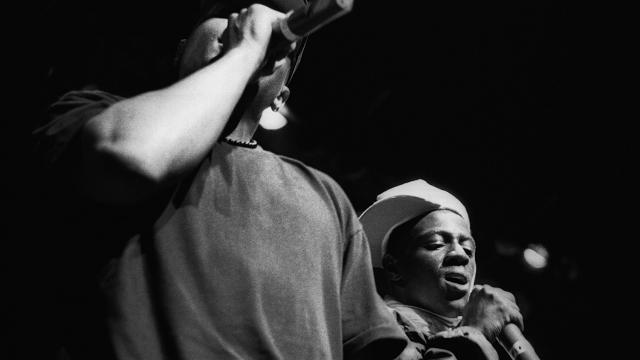
STAY COLLABORATIVE
After talking for a few minutes, Chuck D’s more awake and animated, and he’s talking about the show that kept him up the night before—it was a show by the Minneapolis collective Rhymesayers, and he gets excited as he recalls the way they delivered for the audience. 'When I saw Brother Ali, Dilated Peoples, and Atmosphere get down collectively together—I haven’t seen a better show than that collectively ever,' he says. 'I don’t think that the guys with the press and hype could ever top them. The skills are just too refined. They’ve done too many shows and have too many skills. Rhymesayers is probably the best hip hop label in the business, ever—for a long stretch of time, and in Minneapolis, because they realize that if they don’t do it, nobody will.'
Collaboration isn’t always the nature of hip-hop, though—at least not in 2015, when a culture that celebrated NWA and Public Enemy, or DJ Jazzy Jeff and the Fresh Prince and Eric B. and Rakim, is now dominated by solo acts. But it’s something that Chuck D misses. 'It’s all got to fit together,' he says of the current approach to collaboration, when even rappers on the same song are trying to top one another. 'You’ll never see a guitar player trying to always out-beat the bass player.'
For Chuck D, though, collaboration can’t just end at the studio. He consistently beats the drum for hip hop as a live artform, and he sees collaboration as a big part of that. 'It’s got to work in sync, because at the end of the day, it’s performance art, and it’s got to be panoramic when it’s on the stage,' he say, dismissing the idea of studio-based collaboration. 'Collaboration sometimes means that a person wants to be an individual rapper, but doesn’t have enough to finish out, so they go out and collaborate to finish out a tune or finish out an idea,' he says. '‘I want to do an album, I’ve got twelve tracks—that’s a lot of writing, so I’m going to collaborate.’ It’s not followed up in performance, though. If it was a collaborative effort and performance, that means you’ve got to really take it seriously, to go the nine yards to work with people’s sensibilities on how they accept a band, not a brand.'
The idea of a hip hop that treats collaboration as part of the live experience—that sees making music together as a chance to be in a brand, rather than to co-brand—as an integral part of the artform is something he’d love to see, but he’s experienced enough to be skeptical that his vision of what hip hop should be is going to happen. 'I always thought if guys are going to go out and tour together, they should put like four other acts with them, because otherwise it’s like watching U2 all night,' he says. 'It’s not enough. Imagine if you saw Kanye and Jay-Z, and Atmosphere and Rhymesayers open up for them. But then again, that would make it real hard for the headliners. But I think in time they would handle it. They’d have to.'
fastcocreate.com
